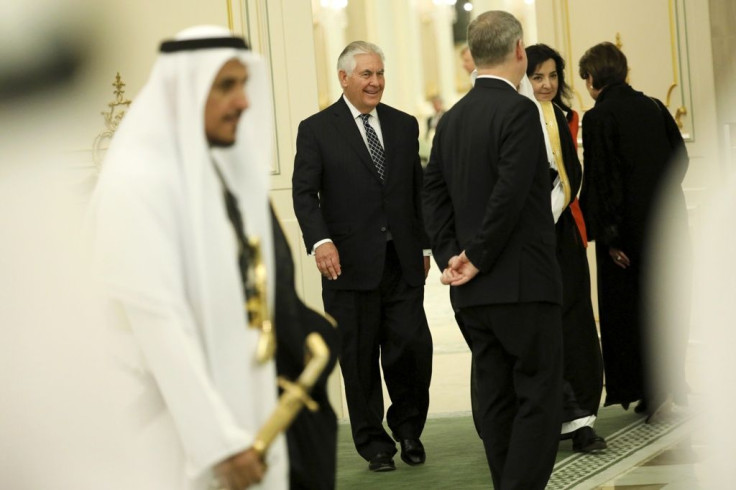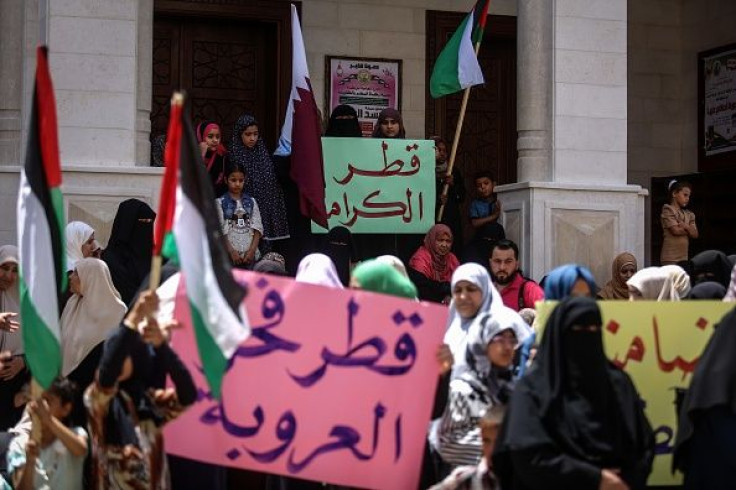Gulf Standoff: Amid Trump’s Qatar-Bashing, Tillerson Called For Easing Tensions Thrice

Two weeks after the Arab countries imposed a blockade on Qatar over alleged terror links, Secretary of State Rex Tillerson said Wednesday the U.S. hoped to see the “list of demands” prepared and coordinated by the GCC for Qatar would be “reasonable and actionable”.
In a brief statement, Tillerson talked about the U.S. support for the “Kuwaiti mediation effort”.
“In regards to the continuing dispute within the GCC [the Gulf Cooperation Council], we understand a list of demands has been prepared and coordinated by the Saudis, Emiratis, Egyptians, and Bahrainis. We hope the list of demands will soon be presented to Qatar and will be reasonable and actionable. We support the Kuwaiti mediation effort and look forward to this matter moving toward a resolution,” he asserted.
Accusing Doha of supporting terrorism, Saudi Arabia, the UAE, Bahrain and Egypt severed diplomatic ties with Qatar on June 5 affecting air traffic and shipping in Qatar. Following the sanctions, President Donald Trump took credit for the isolation of Qatar and accused the tiny Gulf nation, a U.S. military partner, of funding terror, according to multiple reports. The latest standoff is the worst to hit the GCC since its formation in 1981.

Read: What You Need To Know About Tensions In The Gulf
In a call to Crown Prince Mohamed bin Salman of Saudi Arabia on Wednesday to congratulate him on recently being named crown prince, Trump also discussed the Qatar blockade.
“The two leaders discussed the priority of cutting off all the support for terrorists and extremists, as well as how to resolve the ongoing dispute with Qatar,” the White House’s official statement read. However, despite Trump’s Qatar-bashing, the secretary of state has been pushing for a reconciliation to resolve the Gulf dispute.
The state department took an about turn Tuesday from Trump’s earlier remarks and questioned the motive of Saudi Arabia and the United Arab Emirates for their boycott of Doha. Referring to the six-nation GCC, state department spokeswoman Heather Nauer expresed doubts over the intentions of the countries, saying: “Now that it’s been more than two weeks since the embargo started, we are mystified that the Gulf states have not released to the public, nor to the Qataris, the details about the claims that they are making toward Qatar."
Doha welcomed the alternative U.S. stance Wednesday and expressed Qatar’s support for mediation efforts by Kuwait, the GCC nation that preferred to join other member nation Oman in staying neutral amid the crisis.
With the crisis escalating, Washington has been sending mixed signals over the Gulf standoff. While Trump launched scathing attacks on Qatar, Tillerson cancelled his Mexico visit slated for June 21 to focus on the diplomatic crisis in the Gulf region. He was scheduled to go to Cancun for a meeting of the Organization of American States, where the main focus was Venezuela’s political crisis, reports said.
Drawing attention of the Arab nations to the “humanitarian concerns of the sanctions”, Tillerson in a June 9 statement insisted: “There are humanitarian consequences to this blockade. We are seeing shortages of food, families are being forcibly separated, and children pulled out of school.”
Read: Qatar Crisis Update 2017: Oil Export Conflict Expands To Libya
He also referred to the challenges for the U.S. after the sanctions were imposed. "The blockade is hindering U.S. military actions in the region and the campaign against ISIS," he said.
Soon after Tillerson’s statement however, Trump criticised Doha again. “The time had come to call on Qatar to end its funding … and its extremist ideology,” he said, CNN reported. In a sharp contrast to Trump's tough stance, Secretary of Defense James Mattis also labeled the Gulf crisis a “very complicated situation”. "I believe that Prince Thani inherited a difficult, very tough situation, and he's trying to turn the society in the right direction," Mattis was quoted as saying in multiple reports.
© Copyright IBTimes 2024. All rights reserved.











